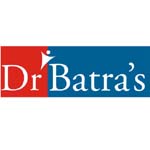Dr. Batra’s Homeopathy is Safe & Effective in PCOS
A woman is a born multi-tasker — mother, homemaker, wife and professional. She steps into any of these roles effortlessly; she also attends to everyone’s needs in the family. Well, in order to perform her duties, she tends to sometimes neglect her own health and well-being.
Women’s disorders are soaring at an alarming rate, today — they range from simple menstrual disturbances and infertility to malignancies.
A frequently encountered complaint now on the rise is polycystic ovarian syndrome (PCOS).
Many women, who have PCOS have limited success in treating the problem through conventional medication.
PCOS is the leading cause of infertility; it is also the most common hormonal disorder among women of reproductive age. It affects about 5 per cent of all women.
Coping with complexity
Coping with PCOS is complicated; it is also a painful challenge. From the many embarrassing symptoms to difficulty in conceiving, women with PCOS often feel that they are all alone.
Hormonal changes are the hallmark of this disease; almost every body system can be affected. Some women may have irregular ovulation or menstruation, increased hair growth in odd places, or excessive effects of masculinising hormones and weight problems.
Research suggests that the prime cause of PCOS could be insulin-resistance diabetes, which leads to hormonal imbalance, causing disruption of normal menstruation. The adrenal gland is also said to produce more testosterone, the male hormone, in PCOS. This increased level may prevent ovulation and trigger symptoms related to the disorder. PCOS has been linked to a number of health complications, including type-2 diabetes, cardiovascular (heart) disease and endometrial cancer, too. The earlier you begin to monitor PCOS, the sooner you can manage and correct symptoms.
Conventional treatment of PCOS aims at restoration of the normal menstrual cycle, fertility, lowering of insulin levels, treatment of excessive hair growth and prevention of endometrial cancer, dietary therapy and/or use of contraceptive pills. The downside is they provide only temporary relief, besides leading to drug dependency — without eliminating the problem from the root.
Research has shown that alternative treatments, like homeopathy, offer better results when compared to conventional treatment.
Healing with Homeopathy
The root cause of PCOS lies in hormonal disturbance. Homeopathy corrects the hormonal disturbance and brings about harmony, without the risk of side-effects. It also helps to avoid the use of surgical procedures, while bringing about regularisation of the menstrual cycles and increasing the chances of conception.
In a clinical trial of 36 women suffering from PCOS, fitting the mental picture of the homeopathic remedy, Pulsatilla 30C, 32 had complete disappearance of symptoms of PCOS, followed by the production of normal ovulating follicles. A further 4 of the 36 became asymptomatic (Source: Sanchez-Resendiz J, Guzman-Gomez F, Polycystic Ovary Syndrome, Boletin, Mexicano de Homeopatica, 30, 1997, 11-15).
In addition, the homeopathic medicine Calcarea Flouricum is evidenced to dissolve cysts, while Apis Mellifica is indicated as a general remedy in PCOS.
However, it is imperative to speak to a professional homeopathic doctor at Dr Batra’s for the best results.
 Self-Help
Self-Help
Along with medications, the following dietary recommendations by Dr. Batra’s are useful in PCOS.
- Eating carbohydrates alone may not be a good idea. Instead, combine them with proteins and/or fats
- Try to select foods with lower glycaemic index, as they cause a slower rise in blood sugar (Example, bran, bread, cereals)
- Drink at least 8-10 cups of non-caffeinated fluids, as a low-carbohydrate intake can cause dehydration
- Limit foods high in saturated and transfats (i.e., red meat, whole milk, dairy, butter and stick margarine, chicken skin, fat/fried foods, rich dessert)
- Select monounsaturated fats (olive oil, canola oil, nuts) and omega-3 fats (fatty fish, such as salmon and bluefish, flaxseed, nuts)
- Exercise, under the guidance of a trainer, on a regular basis
- A calcium supplement (1,000 mg) fortified with folic acid (400 mcg) is recommended.



